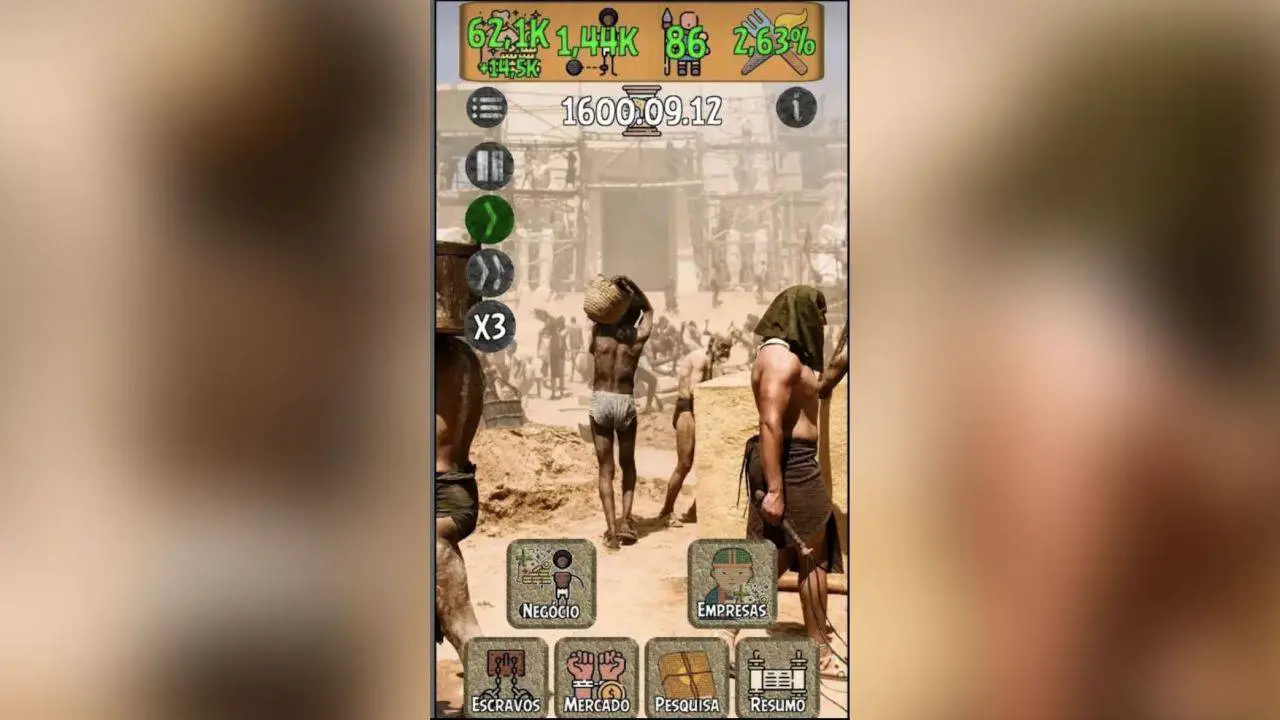After severe backlash, Google has finally pulled down a controversial game called “Simulador de Escravidão” which translates to “Slavery Simulator” that allowed players to “buy and sell” Black characters. The mobile game was launched on Google Play Store on 20 April by Magnus Games.

After Slavery Simulator appeared on Play Store, there was outrage in Brazil. However, before the game was removed on Wednesday, May 24, from the app store, it has already been downloaded over 1,000 times. However, a screenshot shared by lawmaker Denise Pessoa suggests the game may have had over a million downloads. Critics are wondering why it took so long for Google to do something about it.
Brazil’s Public Prosecutor’s Office has launched an investigation into why the game got to Play Store in the first place. Prosecutors asked Google to provide “specific information about the game”. The prosecutors also acknowledged the presence of a “great number of racist comments” on Google’s platform.
ALSO READ: Black Video Game Developers Remain Underrepresented In The Industry
Slavery was abolished in Brazil in 1888—over two decades after the United States—but the country is still coming to terms with the legacy. There are still sprouts of racial-related killings in the country and the emergence of a Slavery Simulator further endorses or legitimizes the practice.
The game description mentioned that players can “exchange, buy, and sell slaves”. Also, players of the game were allowed to torture black characters in various ways. Images from the game show that players were given the choice to either liberate the enslaved character or “use slaves for your own enrichment. Prevent the abolition of slavery and accumulate wealth”.
Slavery Simulator literally teaches players how to keep slaves

The game offers different modes. Sprinkled all over the game are prompts that tell people how to keep and use slaves. The game description allows players to “Choose one of two objectives at the start of the slave owner simulator: the Path of the Tyrant or the Path of the Liberator. Become a wealthy slave owner or achieve the abolition of slavery”.
According to screenshots from the game, prompts like “You need a guard! You have slaves but no one is guarding them. Without guards, the slaves will run away or rebel. Hire some fighters. Usually, 1 guard is enough for 30 slaves” and “Slave level: the higher the level, the higher the profit the slave will bring,” appear often in the game.
Magnus Games claimed Slavery Simulator was created solely for the sake of entertainment. Different news agencies including the BBC reached out to the developers but got no comment.
Magnus Games in the description said Slavery Simulator was “created solely for entertainment purposes. “Our studio condemns slavery in any form. All game content is fictional and not tied to specific historical events. All coincidences are accidental.”
On Play Store the game had a rating that said it was appropriate for “all ages”. Games that had that rating in Brazil are those with content that is suitable for everyone. However, the platform has a caveat that, “Sometimes, it can present some element of very low impact, such as childish violence”.
CNN Brazil reached out to Google who reiterated that violence has no place on their platform. They also called on people to report apps that violate any of Google’s rules.
“We have a robust set of policies that are designed to keep users safe and that all developers must follow. We don’t allow apps that promote violence or incite hatred against individuals or groups based on race or ethnic origin, or that depict or promote gratuitous violence or other dangerous activities. Anyone who believes they found an app violating our rules can file a report. When we identify a policy violation, we take appropriate action.”
Google
Although Slavery Simulator was removed from the platform, other games from the developer like “Mafia Killer Simulator” and “Election Politics Simulator” were reportedly still on Play Store. We can’t verify this because we didn’t find the games on Play Store at the time of writing this post.

Sadly, although Slavery Simulator has been removed from Play Store, the over 1,000 people that have already downloaded the game can continue to play and share it with others using file-sharing apps.
Reactions that trailed the release of Slavery Simulator
After the game went viral on social media, there was outrage with many criticizing the game. However, oddly chilling is the fact that before Slavery Simulator was removed, it had a rating of 4.0 stars out of 5.0 which suggests that most of the players enjoyed the game.
One of the reviews which gave the game a 5-star rating read, “Great game to pass the time. But I think it lacked more torture options. They could click on the option to flog the slave too”.
Another comment read, “I have a black friend and it was cool to play co-op with him”.
However, not everyone found the game entertaining as the developers claimed. Another reviewer who was obviously disgusted wrote, “It is unbelievable that this type of content is available and accessible to children”.
Several lawmakers openly criticized Magnus Games on Twitter for creating a game on a theme that demeaned the suffering and torture of Black people, some of whose blood the country was built on.
“This is an apology to crime, this is recreational racism, they have to answer criminally,” tweeted a lawmaker Orlando Silva, after making an official complaint to the Public Prosecutor.

“Our country was built with the blood of the Black population. People were killed, and tortured. A ‘Slavery Simulator’ is not a theme for games.” Tweeted another lawmaker, Denise Pessoa.

Bruno Cândido, a Black lawyer based in Rio de Janeiro shared a disturbing screenshot from the game on Twitter and said, “At any time your Black child could come across a game in which they are reduced to enslavement, and if your child is white, they will be taught through recreational racism to become an enslaver in real life”.

Black stereotype is a common feature in video games and we know why
Slavery Simulator is not the first time that Black stereotype would pop up its ugly head in a video game—and would probably not be the last. Earlier this year EA Sports came under fire after research surfaced that said FIFA20 attributed more physical competencies to Black players while giving their White counterparts more technical and cognitive skills.
Arguably the biggest reason why the Black stereotype is prevalent in video games has to do with the lack of equal representation. There are just too few Black video game developers in the industry—notwithstanding that Black game developers like Jerry Lawson played a tremendous role in the industry.
In North America, only about 5% of jobs in the game industry are occupied by Black people. The lack of game writers and developers in the industry means that people that rarely have the idea of what it means to be a Black person are allowed to tell “Black stories”.
While there are budding game studios in Africa, virtually all of them lack the resources to make triple-A games that will catch the attention of global audiences and push indigenous African stories to the global gaming audience.
Unless African game studios find a way to overcome the limitations they face, studios like Magnus Games will continue to reduce the story of the Black race to games like Slavery Simulator. Also, established gaming studios should consciously do more to achieve racial parity in their workspaces.
It is hard to imagine that if Magnus Games had a black developer he or she would have given a nod to making a socially sensitive and distasteful game like Slavery Simulator. A racially diluted workspace will continue to serve as a social conscience that sieves what studios put out.
Do you think Slavery Simulator should be taken like every other game? Was the outburst justified or simply an overreaction? Share your thoughts in the comment box below.
TAKE OUR POLL
Remember to share and bookmark this website to stay up to date on all the hottest news in the gaming industry.



